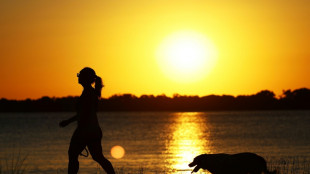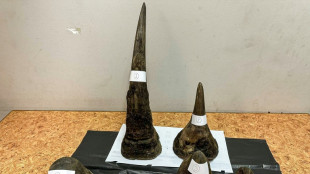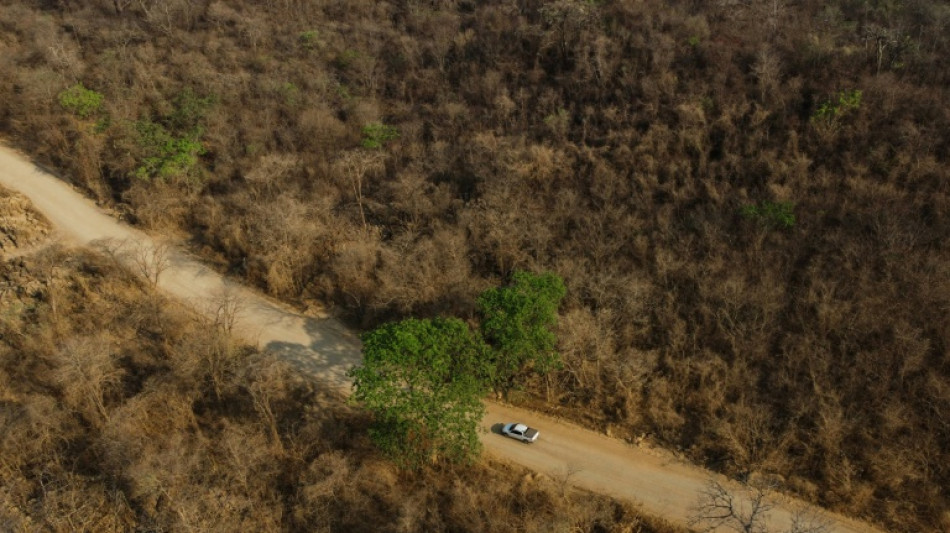
-
 Asian stock markets rise, dollar dips as traders await US jobs
Asian stock markets rise, dollar dips as traders await US jobs
-
Britain's Harris Dickinson on John Lennon, directing and news overload

-
 9 killed in Canada mass shooting that targeted school, residence
9 killed in Canada mass shooting that targeted school, residence
-
Wembanyama scores 40 as Spurs rout Lakers, Pacers stun Knicks

-
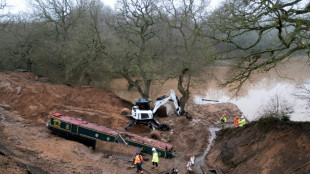 UK's crumbling canals threatened with collapse
UK's crumbling canals threatened with collapse
-
Hong Kong convicts father of wanted activist over handling of funds

-
 Australia charges two Chinese nationals with foreign interference
Australia charges two Chinese nationals with foreign interference
-
'Overloading' may have led to deadly Philippine ferry sinking

-
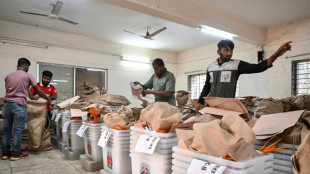 Bangladesh to vote on democratic reform charter
Bangladesh to vote on democratic reform charter
-
China coach warns of 'gap' ahead of Women's Asian Cup title defence

-
 Glitzy Oscar nominees luncheon back one year after LA fires
Glitzy Oscar nominees luncheon back one year after LA fires
-
Pacers outlast Knicks in overtime

-
 9 killed in Canada mass shooting that targeted school, residence: police
9 killed in Canada mass shooting that targeted school, residence: police
-
De Zerbi leaves Marseille 'by mutual agreement'

-
 Netanyahu to push Trump on Iran missiles in White House talks
Netanyahu to push Trump on Iran missiles in White House talks
-
England captain Stokes has surgery after being hit in face by ball

-
 Rennie, Joseph lead running to become next All Blacks coach
Rennie, Joseph lead running to become next All Blacks coach
-
Asian stock markets mixed as traders weigh US data, await jobs

-
 Australian Olympic snowboarder airlifted to hospital with broken neck
Australian Olympic snowboarder airlifted to hospital with broken neck
-
Moderna says US refusing to review mRNA-based flu shot

-
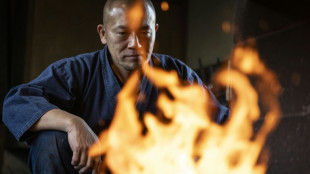 'Artists of steel': Japanese swords forge new fanbase
'Artists of steel': Japanese swords forge new fanbase
-
New York model, carved in a basement, goes on display

-
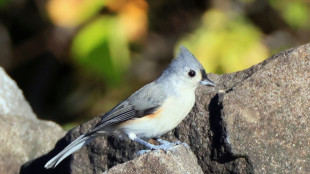 Noisy humans harm birds and affect breeding success: study
Noisy humans harm birds and affect breeding success: study
-
More American women holding multiple jobs as high costs sting

-
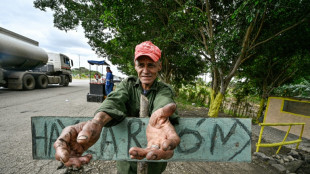 Charcoal or solar panels? A tale of two Cubas
Charcoal or solar panels? A tale of two Cubas
-
Genflow Biosciences PLC Announces Notice of GM

-
 Tocvan Announces Restart Of Exploration Drilling At The Gran Pilar Project South Block
Tocvan Announces Restart Of Exploration Drilling At The Gran Pilar Project South Block
-
Corporate Treasury & Digital Infrastructure Note: The Active Management Divergence

-
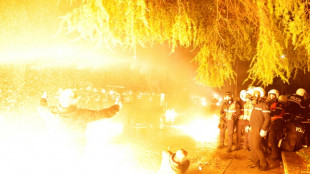 Several wounded in clashes at Albania opposition rally
Several wounded in clashes at Albania opposition rally
-
Chelsea's draw with Leeds 'bitter pill' for Rosenior

-
 'On autopilot': US skate star Malinin nears more Olympic gold
'On autopilot': US skate star Malinin nears more Olympic gold
-
Carrick frustrated by Man Utd's lack of sharpness in West Ham draw

-
 Frank confident of keeping Spurs job despite Newcastle defeat
Frank confident of keeping Spurs job despite Newcastle defeat
-
James's All-NBA streak ends as Lakers rule superstar out of Spurs clash

-
 Anti-Khamenei slogans in Tehran on eve of revolution anniversary: social media footage
Anti-Khamenei slogans in Tehran on eve of revolution anniversary: social media footage
-
Colombian senator kidnapped, president targeted in election run-up
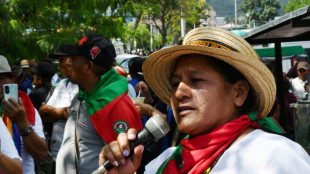
-
 Britney Spears sells rights to her music catalog: US media
Britney Spears sells rights to her music catalog: US media
-
West Ham end Man Utd's winning run, Spurs sink to 16th

-
 US skate star Malinin leads after short programme in Olympics
US skate star Malinin leads after short programme in Olympics
-
Man Utd's Sesko strikes late to rescue West Ham draw

-
 Shiffrin flops at Winter Olympics as helmet row grows
Shiffrin flops at Winter Olympics as helmet row grows
-
Celtics' Tatum practices with G League team but injury return uncertain

-
 Gisele Pelicot publishes memoirs after rape trial ordeal
Gisele Pelicot publishes memoirs after rape trial ordeal
-
Newcastle beat sorry Spurs to leave Frank on the brink

-
 'Outrage' as LGBTQ Pride flag removed from Stonewall monument
'Outrage' as LGBTQ Pride flag removed from Stonewall monument
-
Chappell Roan leaves agency headed by embattled 2028 Olympic chief

-
 Venezuelan authorities move Machado ally to house arrest
Venezuelan authorities move Machado ally to house arrest
-
YouTube rejects addiction claims in landmark social media trial

-
 Google turns to century-long debt to build AI
Google turns to century-long debt to build AI
-
'I felt guided by them': US skater Naumov remembers parents at Olympics


Green shoots spring from ashes in Brazil's fire-resistant savanna
The huge wildfires that ripped through Brazil recently did not spare its vast tropical savanna, but green shoots are already emerging from the ashes there, proof of the vast grasslands' rare gift for fire resistance.
The Cerrado, the most species-rich savanna in the world, covers some two million square kilometers of land (770,000 square miles) in central Brazil -- nearly one-fifth of the country's entire surface area.
In Brasilia National Park, on the outskirts of the nation's capital, blackened soil and charred tree trunks stand testimony to the ferocity of a fire that ripped through 1,470 hectares (3,600 acres) of land in September.
Brazil was then in the throes of a record drought -- the city of Brasilia had gone 169 days without a drop of rain -- which lit the torch under the worst wildfire season in over a decade, blamed by experts at least partly on climate change.
But the Cerrado, which is less well-known than the neighboring Amazon and Pantanal wetlands, has a superpower: over millions of years, it has developed some resistance to flames and high temperatures.
- Upside-down forest -
"The Cerrado is an inverted forest. We see only a fraction of it because the forest is all under our feet," said Keiko Pellizzaro, an environmental analyst at the Chico Mendes Institute for Biodiversity Conservation, a government agency.
The Cerrado's deep root system acts like a "pump," sucking up groundwater "even during extreme drought," she said.
Meanwhile, above ground the trees' thick bark and the shells of the fruit act as "thermal insulators," said Isabel Schmidt, professor of ecology at the University of Brasilia.
Even if temperatures reach up to 800 centigrade (1,470 Fahrenheit), the vegetation can survive "as if it were just another hot day," she said.
A month after the recent fires, the first rains saw grass and small plants quickly beginning to grow, and new leaves sprouted on charred trees in Brasilia National Park.
"Even if it hadn't rained, we would have seen some resilience," Pellizzaro said.
"I'm amazed by its capacity for regeneration," said Priscila Erthal Risi, a 48-year-old volunteer who took part in an operation by the Chico Mendes Institute to replant the reserve with native species such as donkey's tail and Magonia pubescens trees.
- Tested to the limit -
Brazilian police are still investigating the cause of the fire in Brasilia National Park.
Most wildfires in Brazil are started by farmers or agribusiness workers to clear land for cattle grazing or crops.
Schmidt said the Cerrado's vegetation had always survived sporadic fires caused by lightning strikes during the rainy season.
But she warned that if extreme droughts become more frequent the biome's resilience could be tested.
"The resistance that plants and animals have to any type of fire was developed over millions of years, but climate change has taken place in a matter of decades. No organism can adapt that quickly," she said.
- 'Cradle of waters' at risk -
The Cerrado is crucial not only for the survival of the thousands of species that call it home but for the water supply of a large part of South America.
The so-called "cradle of waters" is home to the sources of some of the continent's biggest rivers and aquifers.
But its role as a continental spring is endangered.
With the rainy season starting later and later each year and the amount of rain declining by eight percent on average over the past three decades, the flow of the Cerrado's rivers has fallen by 15 percent.
If wildfires become more frequent, Schmidt warned, "many ecosystems that are more vulnerable to fire," including in the Cerrado, "will simply not survive."
A.Rodriguezv--AMWN
